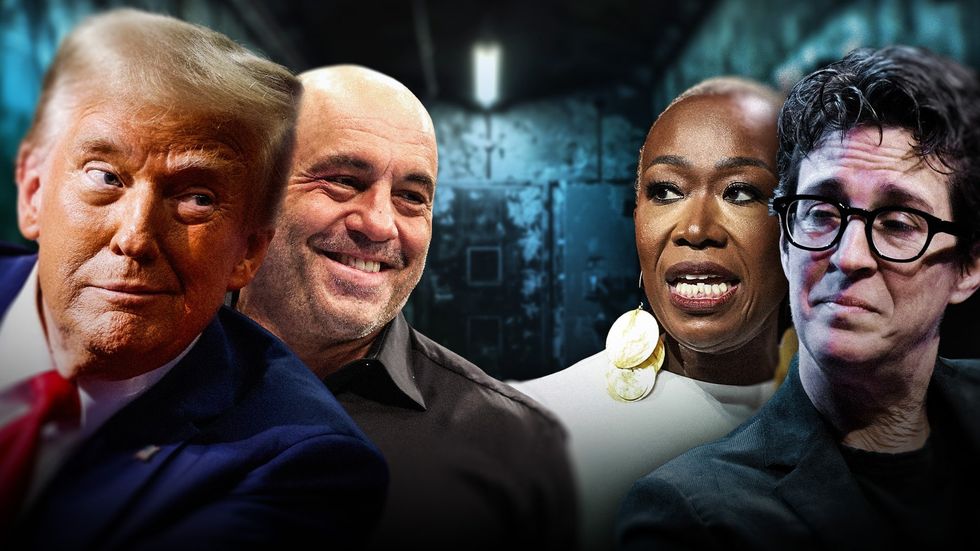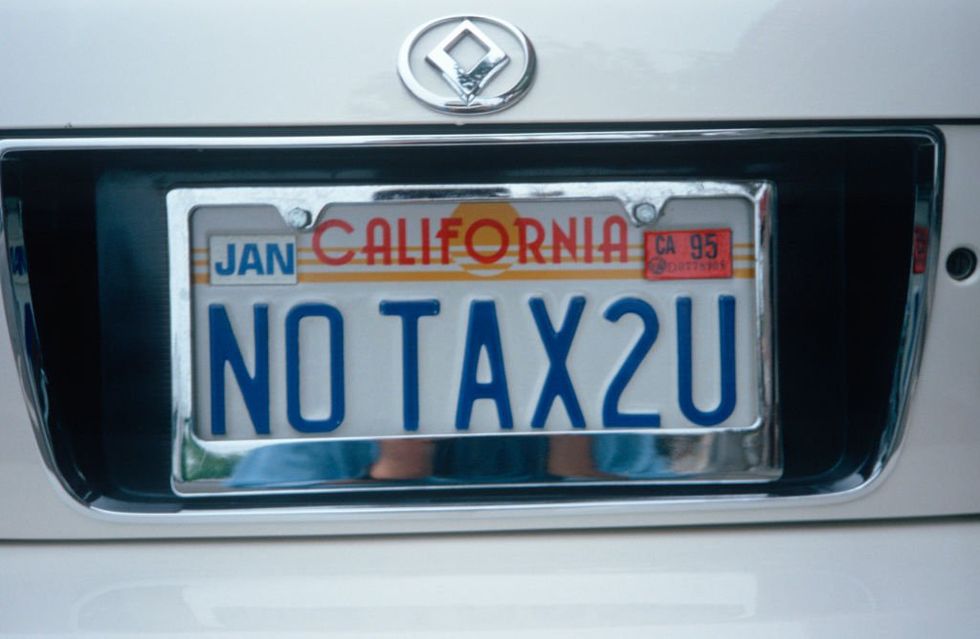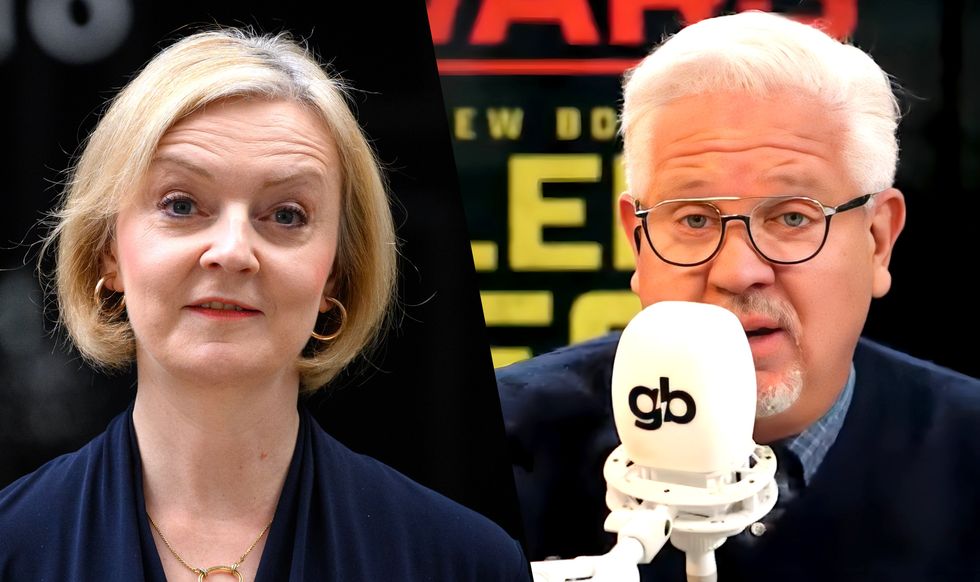Leftist echo chamber cracks as alternative media gains ground
Donald Trump dealt an earth-shattering blow to the American left. The reality television star not only secured a convincing win in the Electoral College but also captured the popular vote and carried down-ballot Republicans to victory, with the GOP taking control of the Senate and likely retaining the House. Typically, such a decisive mandate for the opposition would lead a political party to reflect on the policies or rhetoric that contributed to such a defeat. But Democrats are having none of that.Instead of examining their platform, tone toward the American people, or use of power, liberal pundits and politicians have reached a different conclusion. From MSNBC to CNN and HBO, they have conducted election postmortems, blaming their loss on one main problem: that the American people have too much free speech.Democrats had constructed a reality in which their ideology was unquestionable and their victory inevitable.A few thoughtful voices on the left have suggested that policies like opening the border, demonizing men, ignoring the economic struggles of middle Americans, and promoting radical gender politics to children may have hurt the Democrats' chances. Yet these moderating voices have been quickly labeled as racist and sexist, silenced by progressives deeply invested in their own radical ideology. Instead, the left has chosen to lay the blame for its loss on alternative media.The left has sounded the alarm about the dangers of misinformation and disinformation for years. Progressives once held a near-total monopoly over the elite institutions that shape ideological consensus in America. In a world where individuals are often isolated from real interactions or events, the dominant narrative provided by news and entertainment had the power to define reality. That is how a nation can be convinced to treat a severe flu like the Black Death. Democrats have lived inside this self-constructed reality for so long that they have forgotten its artificial nature — like a fish that doesn’t know it’s wet.Progressives genuinely believe Americans are inherently racist, sexist, and homophobic, and they worry that without a controlled flow of carefully curated information, people will revert to their “brutal” nature and start throwing Nazi salutes in honor of the eternal Trumpenreich. Leftist operatives don’t view themselves as propagandists because they rely on narratives shaped by a network of credentialed institutions.When progressives talk about “our democracy,” they really mean the consensus upheld by “experts” who show loyalty to their ideology. Any information that contradicts this narrative becomes “misinformation” — not because it’s factually incorrect but because it challenges their carefully curated information ecosystem.In this moment of utter defeat, Democrats have pointed fingers at podcasters like Joe Rogan and Theo Von, frustrated by their influence on young men. Some leftist pundits even suggest the need to create a “progressive Joe Rogan” or build their own network of influencers.But this approach is delusional on multiple levels. The left already has a massive influence network that spans mainstream media, Hollywood, corporate America, academia, and the unelected federal bureaucracy. Progressives don’t view this as an “influence network,” however. They see it as basic institutional reality. They have convinced themselves that the shadows they cast on the wall are reality, and anything outside them is nefarious and artificial.Progressives have plenty of young male influencers, like David Pakman and Hasan Piker. These voices enjoy major funding and the advantage of speaking with little to no fear of censorship from big tech. But it is exactly this obvious alliance with the status quo that dooms their efforts. Liberal commentators aren’t rebels speaking truth to power; they’re pushing on an open door. Their apparent lack of authenticity is palpable, and audiences sense it. This disconnect is so pronounced that Pakman recently made a video addressing the fact that his own audience is leaving in droves.The left’s challenge isn’t a lack of media reach. Despite emerging cracks in their foundation, progressives still hold significant influence over legacy media, education, and government bureaucracies that shape public opinion in the United States. The real problem is that each of these institutions has sacrificed its credibility in pursuit of ideological control. Soft power is delicate. It requires disciplined actors who can leverage institutional control without overtly advancing their own interests. Progressives have lost all such discipline and burned the precious currency of institutional legitimacy for short-term gain. Now they will reap the whirlwind.The left still has extensive media representation, but it no longer holds a media monopoly. Despite a substantial advantage in funding, prestige, and infrastructure, audiences are abandoning traditional media because of their consistent misinformation. Th


Donald Trump dealt an earth-shattering blow to the American left. The reality television star not only secured a convincing win in the Electoral College but also captured the popular vote and carried down-ballot Republicans to victory, with the GOP taking control of the Senate and likely retaining the House. Typically, such a decisive mandate for the opposition would lead a political party to reflect on the policies or rhetoric that contributed to such a defeat. But Democrats are having none of that.
Instead of examining their platform, tone toward the American people, or use of power, liberal pundits and politicians have reached a different conclusion. From MSNBC to CNN and HBO, they have conducted election postmortems, blaming their loss on one main problem: that the American people have too much free speech.
Democrats had constructed a reality in which their ideology was unquestionable and their victory inevitable.
A few thoughtful voices on the left have suggested that policies like opening the border, demonizing men, ignoring the economic struggles of middle Americans, and promoting radical gender politics to children may have hurt the Democrats' chances. Yet these moderating voices have been quickly labeled as racist and sexist, silenced by progressives deeply invested in their own radical ideology. Instead, the left has chosen to lay the blame for its loss on alternative media.
The left has sounded the alarm about the dangers of misinformation and disinformation for years. Progressives once held a near-total monopoly over the elite institutions that shape ideological consensus in America. In a world where individuals are often isolated from real interactions or events, the dominant narrative provided by news and entertainment had the power to define reality. That is how a nation can be convinced to treat a severe flu like the Black Death. Democrats have lived inside this self-constructed reality for so long that they have forgotten its artificial nature — like a fish that doesn’t know it’s wet.
Progressives genuinely believe Americans are inherently racist, sexist, and homophobic, and they worry that without a controlled flow of carefully curated information, people will revert to their “brutal” nature and start throwing Nazi salutes in honor of the eternal Trumpenreich. Leftist operatives don’t view themselves as propagandists because they rely on narratives shaped by a network of credentialed institutions.
When progressives talk about “our democracy,” they really mean the consensus upheld by “experts” who show loyalty to their ideology. Any information that contradicts this narrative becomes “misinformation” — not because it’s factually incorrect but because it challenges their carefully curated information ecosystem.
In this moment of utter defeat, Democrats have pointed fingers at podcasters like Joe Rogan and Theo Von, frustrated by their influence on young men. Some leftist pundits even suggest the need to create a “progressive Joe Rogan” or build their own network of influencers.
But this approach is delusional on multiple levels. The left already has a massive influence network that spans mainstream media, Hollywood, corporate America, academia, and the unelected federal bureaucracy. Progressives don’t view this as an “influence network,” however. They see it as basic institutional reality. They have convinced themselves that the shadows they cast on the wall are reality, and anything outside them is nefarious and artificial.
Progressives have plenty of young male influencers, like David Pakman and Hasan Piker. These voices enjoy major funding and the advantage of speaking with little to no fear of censorship from big tech. But it is exactly this obvious alliance with the status quo that dooms their efforts. Liberal commentators aren’t rebels speaking truth to power; they’re pushing on an open door. Their apparent lack of authenticity is palpable, and audiences sense it. This disconnect is so pronounced that Pakman recently made a video addressing the fact that his own audience is leaving in droves.
The left’s challenge isn’t a lack of media reach. Despite emerging cracks in their foundation, progressives still hold significant influence over legacy media, education, and government bureaucracies that shape public opinion in the United States. The real problem is that each of these institutions has sacrificed its credibility in pursuit of ideological control. Soft power is delicate. It requires disciplined actors who can leverage institutional control without overtly advancing their own interests. Progressives have lost all such discipline and burned the precious currency of institutional legitimacy for short-term gain. Now they will reap the whirlwind.
The left still has extensive media representation, but it no longer holds a media monopoly. Despite a substantial advantage in funding, prestige, and infrastructure, audiences are abandoning traditional media because of their consistent misinformation. They lied about the border, misled on the pandemic, skewed coverage of Trump, manipulated poll results, and even deluded themselves into thinking Kamala Harris could win a presidential election. Even in defeat, progressive commentators remain oblivious to the reality they've so fervently insulated themselves from.
Leftists now watch the success of podcasters like Rogan and platforms like X, marveling at their influence. On HBO panels and in New York Times columns, they exclaim, “Media can shape reality! I’ve got to get me some of that!” The lack of self-awareness is remarkable. Yet Democrats cannot produce a candidate capable of appearing on Rogan’s show, let alone replicate his authentic style. Rogan may not be conservative, but he doesn’t dismiss Americans or their concerns, offering an everyman quality that is hard to fabricate.
The Democratic Party’s problem isn’t a lack of media reach; it’s a toxic message and an unwillingness to engage with middle America. The party demonizes young white men and labels middle Americans as “trash,” alienating these demographics. The problem isn’t that comedians have podcasts that diverge from the Democratic Party line; it’s the Democrats’ toxic disregard for average Americans’ concerns.
Democrats had constructed a reality in which their ideology was unquestionable and their victory inevitable. Only “outdated” institutions like the Electoral College and voter ID stood between progressives and the “end of history.” Now, a resounding defeat in the popular vote has left them bewildered, searching for someone to blame. There will be no introspection or lessons learned. Instead, leftists have doubled down on radical policies and contempt for Americans. It’s a powerful reminder that decadence breeds weakness and insularity fosters delusion.
Originally Published at Daily Wire, World Net Daily, or The Blaze
What's Your Reaction?

































































































